Journal Boards
Editor in Chief
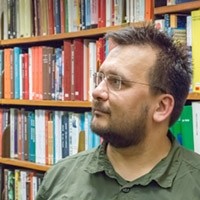

Editorial Board
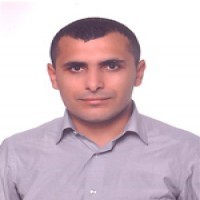

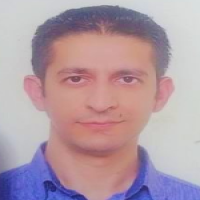

Fieild Editors

 Türkiye
Türkiye
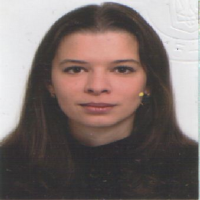



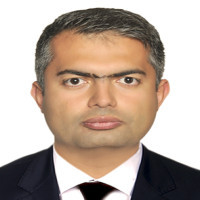
Dr. Mohamed Mahmoud Nasef is currently a Professor at Chemical Engineering Department Universiti Teknologi Petronas. He also served as a professor at Universiti Teknologi Malaysia (UTM) in Malaysia-Japan International Institute of Technology (MJIIT), and Faculty of Chemical Engineering, Centre of Hydrogen Energy for the past 15 years. Dr. Nasef obtained his Master and PhD in Chemical Engineering from UTM, in 1996 and 1999 respectively.
Dr. Nasef is a registered expert in the international Atomic Energy Agency (IAEA) in the field of radiation processing of polymers and he conducted a number of IAEA expert missions in Turkey, China, Brazil, Egypt and Thailand. He was also a chief investigator of the coordinated research projects (CRP) awarded by IAEA to Malaysia (2008-2010 and 2020-till now).
Dr. Nasef has vast experience in planning and execution of R&D in the field of functional polymeric materials for energy, environmental bio medical applications and related separation applications. His research interests include but not limited to development of polymer electrolyte membranes, ion exchange resins, adsorbents, nanofibrous scaffolds, polymer catalysts and permeation membranes in addition to their uses in relevant applications such as fuel cells, PEM water electrolyzers, lithium & vanadium redox flow batteries and membrane separation processes. He is also specialized in polymer modifications with high energy radiation techniques.
Dr. Nasef published more than 150 articles in renowned international journals together with 12 book chapters, 12 reviews and 4 edited books with more than 5000 citations and H-Index of 39.
Dr. Nasef is an active member of various international scientific associations such as the Electrochemical Society, American Chemical Society, European Membrane Society, Institute of Chemical Engineers, and Material Research Society. He is also a member of the editorial board of Journal of Applied Membrane Science, Journal of Technology and electronic Journal of applied electrochemistry
Ramzi Khiari is a senior lecturer at the Higher Institute of Technological Studies in Ksar-Hellal (Monastir, Tunisia) in the department of Textile Engineering. He is a permanent member of Applied Chemistry and Environment research group in the Faculty of Sciences of Monastir of University of Monastir in Tunisia. He was graduated in 2005 at the National Engineering School of in the specialty of Textile Chemistry, before getting a Master degree (2007) from the same institution. Then he performed a sandwich PhD thesis (2010) between University of Monastir in Tunisia and Grenoble INP in France. Finally, in 2017, he has got the diploma of “Habilitation Universitaires” from University of Monastir and 2020 he has got the diploma “Habilitation à diriger des Recherches” in Grenoble INP. His research interests focuses on the valorization of biomass at multi-scale levels namely: fibers, nanocellulose, lignin, hemicelluloses and their used as potential raw materialin several industrial applications (Textile, papermaking, polymeric materials, composites and nanocomposites). A particular focus is given for vegetal biomass from annual plants, and particularly agricultural residues and industrial wastes

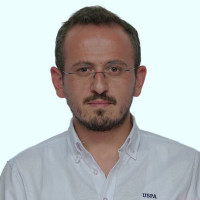
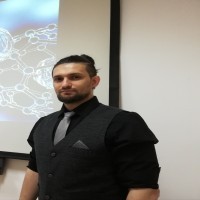







 Türkiye
Web
Türkiye
Web
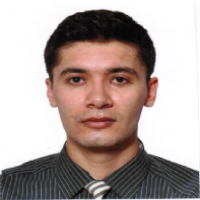

Academic Experience: Yalova University Lecturer (2012-2015)
Advisory Board
Language Editors
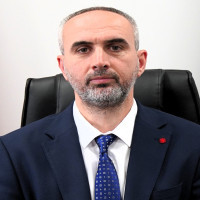
ÖZER UYGUN received the B.Sc., M.Sc., and Ph.D. in industrial engineering from Sakarya University, Turkey, in 1999, 2002, and 2008, respectively. He started his academic position at Marmara University and worked as a Lecturer from 2000 to 2003. Then, he was a Research Assistant at Sakarya University from 2003 to 2008, where he is currently an Associate Professor. He was a Researcher in the EU FP6 Network of Excellence (I*PROMS: 2004-2009) and FP6 STREP Project (IWARD: 2007-2009). He successfully completed the EFQM Assessor Training in Brussels in 2015. His research interests are Operations Research, Optimization, Decision Making, Multi-criteria Decision Making, and Artificial Intelligence.
Aditorial Asistants
The Open Journal of Nano(OJN) deals with information related to (but not limited to) physical, chemical and biological phenomena and processes ranging from molecular to microscale structures.
All publications in The Open Journal of Nano are licensed under the Attribution-NonCommercial 4.0 International (CC BY-NC 4.0) license.


